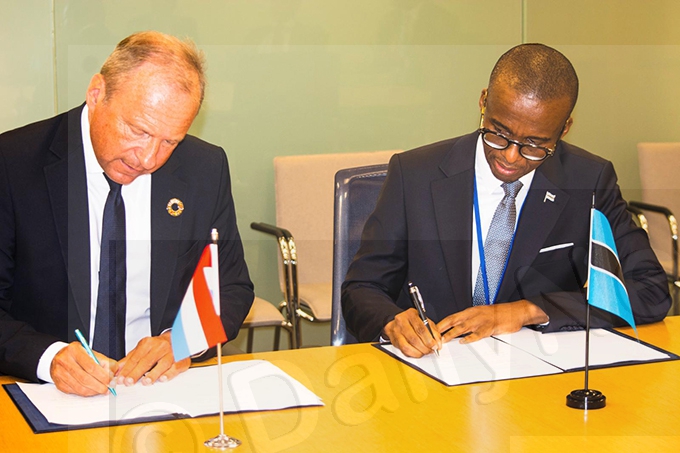Central District on mission to create employment
05 Mar 2015
The Central District Council (CDC) aims to create employment for the youth as well as remote area dwellers through affirmative action.
The district council chairperson, Mr Peter Williams said this during the opening of a full council meeting on Monday, March 6.
Mr Williams said the empowerment policy should be implemented to empower small businesses in communities as well as to empower the less privileged groups through economically viable projects that could create employment for themselves.
He said more emphasis would be put on the eradication of abject poverty through close monitoring of ongoing poverty eradication projects. He added that feasibility studies would be carried out to identify suitable projects to localities, adding that the issue of LED would continue to apply to the poverty eradication exercise.
On education, Mr Williams said the CDC would also give priority to the provision of physical infrastructure to curb the problem of shortage of classrooms and staff housing. He said the Ministry of Education would also increase the number of reception classes in order to improve early childhood learning.
However, Mr Williams noted that reception classes started on a low note during the fiscal year 2014 due to non-availability of funds, with 32 schools admitting children of between ages four-and-half and five-and-half-years respectively.
He said enrolment as at December 2014 stood at 1 136 pupils, adding that there was an increase during 2015 as the schools enrolling receptions had increased to 66 with 2 912 pupils.
On corruption, Mr Williams said the CDC had started producing its own anti-corruption publicity material so as to customise the material to suit the district corruption issues.
He said this would be done through the establishment and operationalisation of corruption prevention committees, of which a sub-committee has been instituted to spearhead the launch before the end of 2015.
Furthermore, Mr Williams informed the council that the electrification of public institutions project was planned to be undertaken in three phases, and that phase one was complete while phase two was in progress.
He said disbursed funds for both phase one and two was P25 717 500, adding that 45 primary schools and 29 teachers’ houses had been awarded in both phases.
He explained that the electrification of 31 primary schools was complete, and that eight were above 95 per cent, one at 90 per cent, and that five primary schools were between 0-10 per cent. ENDS
Source : BOPA
Author : Leungo Rakgati
Location : SEROWE
Event : Full council meeting
Date : 05 Mar 2015






